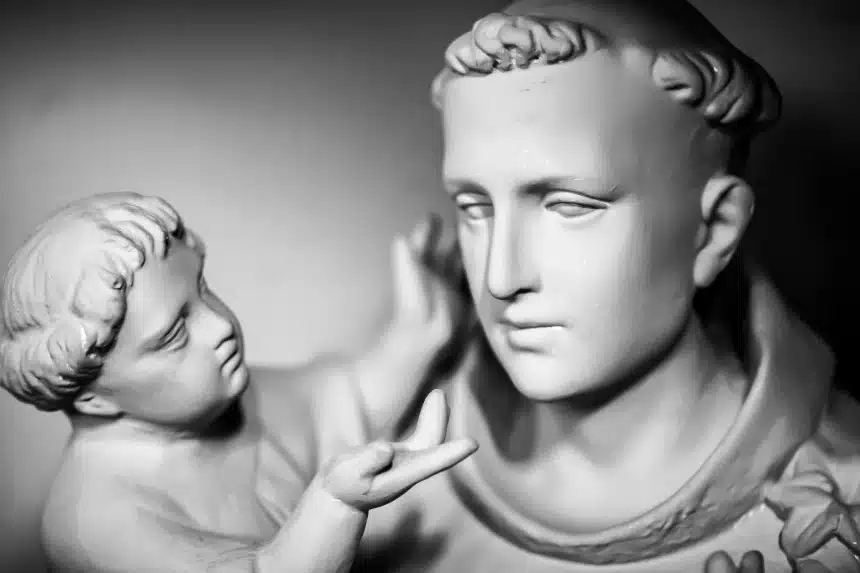The salvific mission of the Communist Party
The political theology of the Albanian Communist Party shaped an unwavering devotion to the state, leaving profound scars on Albanian society. Political theology illuminates the intersection of theological concepts and political ideology within the Party’s doctrine. Born amidst the resistance against Nazi-fascist occupation, the Albanian Communist Party (ACP) heralded the country’s liberation as its paramount goal. In the final years of the war, anti-capitalist rhetoric, internationalist calls, disdain for the upper classes, and class struggle increasingly peppered the leaders’ speeches, marking the inception of its unique form of political theology.
Upon seizing power in November 1944 and reigning until 1991, the ACP’s eschatological project focused on building socialism and establishing a proletariat dictatorship to secure collective happiness in a utopian society. This reflected a sacralization of politics aligned with its ideological principles. Given the working class’s marginal role in Albanian society between the 1930s and 1950s—comprising no more than 7% of the population by 1955—the ACP positioned itself as a movement arising from the “people” rather than the proletariat, adopting an almost religious approach in its liberatory mission.
The regime crafted its political theology by replacing old liturgies with massive commemorations dedicated to glorifying communism.
The regime’s historiography delved into Albania’s past to uncover numerous humble figures yearning for freedom, whom the Party claimed to redeem through partisan warfare. From this prevailing perspective, the ACP alone had succeeded in liberating the people from foreign oppressors, ending a historical cycle of at least nine centuries. However, the ACP’s salvific mission continued in the perpetual battle between Good and Evil, within contexts of suffering and sin, showcasing a political theology centered on ideological struggle.
Authorities proclaimed that sin and suffering would only cease with the eradication of private property, idealistic notions, and religion, thereby pursuing a radical transformation of society towards the communist ideal. This approach highlighted how the regime aimed to supplant traditional religious beliefs with its own dogma, making militant atheism and communist doctrine the cornerstones of its political theology.
Relationships with Institutionalized Religions and the Imposition of the New Doctrine
The relationship between the communist regime and institutionalized religions underwent four distinct phases, reflecting a constantly evolving political theology. The initial phase, from 1944 to 1949, was marked by violent persecution of the clergy from the four main denominations: Sunni and Bektashi Muslims, Orthodox, and Catholics. This repression, based on allegations of collaboration with fascist and Nazi occupiers, signified the beginning of a strategic approach where religion was supplanted by state doctrine, showcasing the regime’s first manifestation of political theology.
Traditional religious practices were replaced by acts of devotion towards the State and its leaders.
By the end of 1949, the regime transitioned, coaxing religious institutions into signing agreements with the state. This shift marked an evolution in the regime’s political theology from repression to increased control, where the state positioned itself not only as the regulator but also as the definer of religious practice, drawing parallels to theocratic practices but within an ideologically atheistic context.
The year 1961 initiated an even more aggressive phase of anti-religious policies, indicating a radicalization of the regime’s political theology. The suppression of worship places and the formal abolition of religious institutions in 1967 represented the culmination of this approach, where the Albanian communist state completely replaced the religious sacred with the political sacred, through the promotion of atheism and the establishment of a new belief system.
This new doctrine, based on scientific atheism and a nationalism converted into “socialist patriotism,” embodied the materialization of the regime’s political theology. Hulusi Hako, by promoting scientific atheism as an ideological tool, acted as the priest of this new faith, where devotion was directed not towards deities but towards the state and its ideals. The creation of a mythology around the national hero and sacred entities such as the homeland, the people, the party, the state, and its leader revealed how, starting from the 1940s, the regime began to forge its own political theology, replacing old liturgies with massive commemorations dedicated to glorifying communism.
The Calendar and Spaces of Mass Liturgy in Albania: An Expression of Political Theology
After 1944, the festivities established in Albania were primarily aimed at commemorating the founding myths of the nation and the Albanian Communist Party, supplanting the rituals and calendar of traditional religions, which constitutes a form of political theology in action. Between 1945 and 1972, the State repeatedly modified the calendar of national holidays, reducing religious holidays while introducing new secular celebrations, demonstrating a strategy aimed at infiltrating and reorienting citizens’ private sphere towards the state ideology.
These celebrations, such as Independence Day and New Year, inherited from the pre-war period but reinterpreted through the prism of socialism, reflected the ACP’s efforts to establish a new collective ritual that fits within the broader framework of the regime’s political theology, where the sacred is now defined by the State. Thus, the last two months of the year became a period of intense mobilization, illustrating how the party sought to manifest its commitment and its “right path” through conviviality and abundance.
The Party’s bodies were tasked with denouncing “parasites” and encouraging their ostracization from the “healthy” segment of society.
The proclamation of national “historical days” and new local festivals, often linked to the memory of the Resistance or the celebration of labor, constituted a reappropriation and sacralization of times and spaces in the service of the ACP’s doctrine. These festivals, located in places of memory, factories, and schools, were enveloped in a monumental propaganda campaign, physically marking the Albanian landscape with symbols of the regime. This effort of monumentalization, particularly after 1967, was part of a desire to “revolutionize” social life through the construction of monuments and the creation of museums, aiming to anchor Marxist-Leninist ideology in the collective consciousness.
The organization of collective pilgrimages to these sites during significant events and the establishment of secular rituals constituted a direct expression of the regime’s political theology, where traditional religious practices were replaced by acts of devotion towards the State and its leaders. These initiatives demonstrate how the ACP attempted to imbue the “new man” with Marxist-Leninist ideology, thereby strengthening his devotion to the party through a reinterpretation of religious traditions in service of politics.
Work as Ritual and Instrument of Control in the Albanian Communist Regime
For the leaders of the Albanian Communist Party and the regime’s ideologues, work embodied the very essence of the Albanian citizenship condition. It was perceived not only as a pathway to collective redemption and devotion to the party but also as a powerful mechanism of social control, thus revealing the tenets of Marxist-Leninist political theology. According to Enver Hoxha, expressing his vision during a plenum in 1964, the formation of the new man was inconceivable without the central element of work. The Institute of Marxist-Leninist Studies even asserted that work fundamentally distinguished man from animal, being a prerogative that even preceded the faculty of thought.
The “new man” sacrificed individuality for absolute obedience to state doctrine.
The 1950 Albanian Constitution, in its Article 13, established two fundamental principles related to work: “he who does not work, does not eat” and “from each according to his abilities, to each according to his work.” The text of 1976, meanwhile, emphasized that the Socialist People’s Republic of Albania represented and defended the interests of “workers,” not merely “citizens,” among whom could be hidden class enemies, deviants, and “parasites.”
Hoxha considered the absence of work not only as a threat to the community and the established order but also as a sign of allegiance to religion, perceived as regressive. The Party’s bodies, at both central and local levels, were thus tasked with denouncing “parasites” and encouraging their ostracization by the “healthy” part of society. Conversely, workers were integrated into society, thus fulfilling their primary duty and acquiring moral capital, or “honor.”
In totalitarian Albania, engagement in work should never be motivated by the desire for personal gain, as in capitalist societies, but should stem from a sincere love and deep faith in the redemptive power of work. Only those who devoted themselves to their labor with love, dedication, and a “full consciousness” of its importance could aspire to true freedom. Otherwise, they remained slaves to their own material and spiritual needs.
The Forging of the New Man
At the heart of the sanctification of politics undertaken by the Albanian communist regime was the ambition to create the new man, a central figure in the aspirations of the Albanian Communist Party. According to Article 32 of the 1976 Constitution, the State was committed to “developing a broad ideological and cultural activity for the communist education of workers, in order to shape the new man.”
This new man was defined by the erasure of individuality in favor of uniformity and unconditional submission to state doctrine, even to the point of sacrificing his own life if necessary. It was imperative for him to constantly involve himself in public life and prioritize the collective interest.
The Albanian Communist Party, exemplified by its pervasive political theology, embodies the complex ramifications of the sacralization of politics.
To mold this ideal, the regime implemented a systematic intervention aimed at defining and imposing a set of virtues and vices, behaviors, emotions, and physical attributes applicable to all citizens. After 1967, this influence extended to onomastics, with the publication of lists of “appropriate” or nationally connoted first names, excluding names with religious or foreign connotations for newborns. Musical and literary preferences, dress codes, and hairstyles also had to conform to norms dictated by the authorities. The new morality regulated personal relationships according to a rationalization of feelings dubbed “proletarian love.”
Within this biopolitical framework, abortion, except for medical reasons, was prohibited, and contraceptives were absent from the market. In summary, the regime aimed to sculpt the new man or the ideal citizen, from birth to death, covering all aspects of life, both in the public and private sphere.
The Impact of Political Theology in the Albanian Communist Regime
The regime of the Albanian Communist Party, exemplified by its pervasive political theology, eloquently embodies the complex ramifications of the sacralization of politics in the 20th century. This sacralization shaped the daily lives of Albanian citizens, imposing on them a total devotion to the State and its doctrine.
The communist experience in Albania, from 1944 to 1991, reveals how the liberation of man from what was perceived as “religious irrationality” revolved around militant atheism, elevated to the status of a political dogma. This merger of atheism and politics led to State intervention in all aspects of citizens’ lives, from the public sphere to the private sphere.
The fall of the regime has left profound scars on Albanian society, where the imprint of these policies persists, notably in consumerism, exacerbated individualism, and obsessive competition. These legacies, far from representing the collectivist aspirations of the regime, signal a radical shift towards individual freedom and the market. The transition to this new era raises crucial questions about how these remnants influence the collective consciousness and social structures of contemporary Albania, as well as former socialist republics in a broader context.






